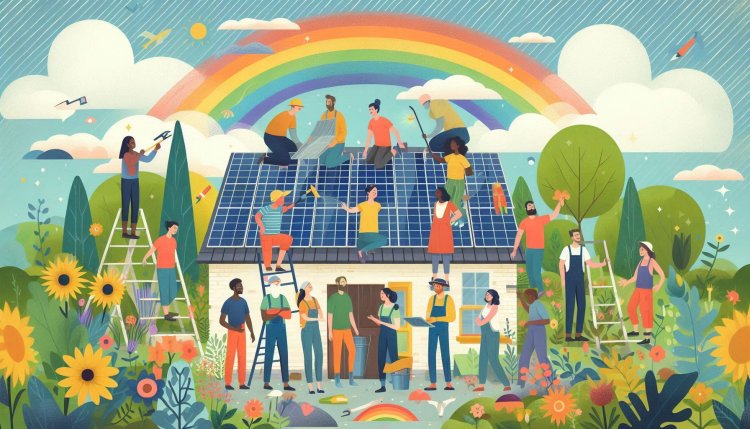Renewable Energy and Environmental Justice
Explore the intersection of renewable energy and environmental justice, advocating for a sustainable future for all communities.

Renewable Energy and Environmental Justice
Renewable energy sources such as solar, wind, and hydroelectric power offer a sustainable alternative to traditional fossil fuels. These sources have the potential to significantly reduce greenhouse gas emissions and combat climate change. However, the benefits of transitioning to renewable energy are not equally distributed, and environmental justice must be a key consideration in the transition to a sustainable energy future.
Environmental Justice
Environmental justice is the fair treatment and meaningful involvement of all people regardless of race, color, national origin, or income with respect to the development, implementation, and enforcement of environmental laws, regulations, and policies. This means that all individuals and communities have the right to equal protection from environmental hazards and the right to participate fully in decisions that affect their environment.
Disproportionate Impact
Historically, low-income communities and communities of color have borne a disproportionate burden of environmental pollution and the impacts of climate change. These communities are often located near polluting industries and fossil fuel power plants, leading to higher levels of air and water pollution, as well as increased risks of health problems such as asthma and cancer.
Renewable Energy and Environmental Justice
As we transition to a clean energy future, it is essential to ensure that the benefits of renewable energy are equitably distributed. This means that renewable energy projects should not only aim to reduce greenhouse gas emissions but also address social and environmental inequities. Communities that have been disproportionately impacted by pollution and environmental degradation should have a voice in the development and implementation of renewable energy projects.
Community Engagement
Meaningful community engagement is crucial in the planning and implementation of renewable energy projects. This involves consulting with local residents, listening to their concerns, and incorporating their input into decision-making processes. By engaging with communities that have been historically marginalized, renewable energy projects can help address environmental injustices and create economic opportunities for local residents.
Equitable Access
Equitable access to renewable energy is also important in ensuring environmental justice. Low-income households may face barriers to accessing renewable energy technologies such as solar panels due to upfront costs or lack of financing options. Policies and programs that promote access to renewable energy for all households, regardless of income level, are essential for achieving environmental justice.
Job Creation
Renewable energy projects have the potential to create jobs and economic opportunities in communities that have been impacted by the decline of fossil fuel industries. By investing in renewable energy infrastructure and workforce development programs, we can create a more inclusive and sustainable economy that benefits all members of society.
Conclusion
Renewable energy offers a promising solution to the challenges of climate change and environmental degradation. However, in order to achieve a truly sustainable and just energy transition, we must prioritize environmental justice in the development and implementation of renewable energy projects. By engaging with marginalized communities, promoting equitable access to renewable energy, and creating economic opportunities for all, we can build a more inclusive and resilient energy system that benefits people and the planet.
What's Your Reaction?

















